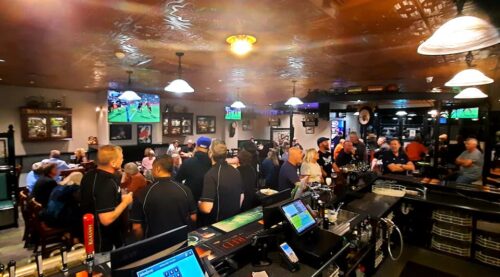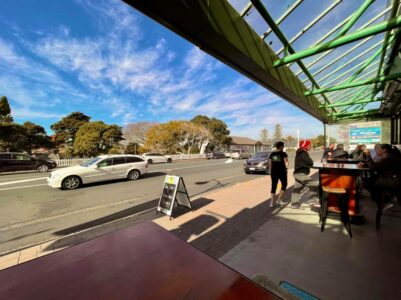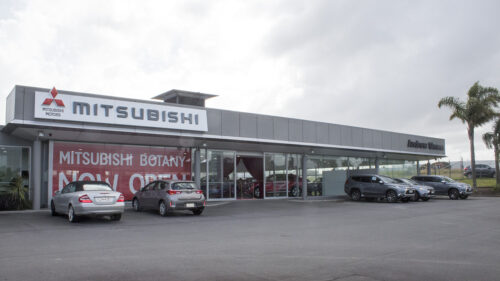
Local businesses have continued to face troubles and concerns under the devastating impact of lockdown and Covid-19.
Botany MP Christopher Luxon said on social media that, over the last few weeks, the conversations with small business owners in particular have changed quite dramatically.
“What I’ve observed is a bunch of people under extreme stress, pressure and anxiety,” Luxon said, “and are feeling quite desperate in this lockdown situation.”
Clive Thompson, owner of Barrel Inn in Howick, says that when his business is 100 per cent closed they lose 100 per cent income. “It’s the same as last year.”
The wage subsidy pays the staff, not the business, Thompson says. “(Barrel Inn) gets nothing basically”.
The difference between the first lockdown and the current one, Thompson says, is that “we’re getting used to it. The problem is that the people who don’t have any money won’t survive”.
Additionally, the current circumstances don’t take into account businesses having to continue to pay their regular bills. “Everybody still needs to be paid, such as rent and suppliers,” Thompson says. “And the GST. Bills don’t stop coming just because you’re closed.”
He says that this is the biggest difficulty of the lockdown – keeping everything going.
“There’s going to be a lot of people that don’t survive this one because of the cost,” Thompson says.
“It’s the same everywhere.”

If lockdown continues, Thompson says the debt is going to be too great for businesses. Talking about the Barrel Inn’s future, he says he’s “100 per cent concerned.”
Even if alert levels drop, level 2 will put a significant financial strain on businesses. “You can only serve them when they’re seated,” he says. “You have to put more staff on. The costs rise.”
Frith Jenkins, practice manager and owner of Howick Village Optometrists, echoed many of Thompson’s fears and concerns.
Last year’s lockdown, she says, was a learning curve for everyone in NZ. “We were unable to open our doors for face-to-face business until level 2,” she says. “We are reliant on that face-to-face to be able to fulfil our client requirements.
“I also had to deal with anxiety amongst our wonderful staff as well.”
The business cannot have an online store so they made sure that their clients could contact them and access information required. “We also made sure our website and social media were updated regularly to keep clients advised,” she says.
The likelihood of another lockdown was very real, Jenkins told the Times. “We have made sure we have plenty of PEP and systems in place so we can move forward in an efficient manner.”
If the lockdown is extended, she says that “the financial loss would obviously be a large impact on any small business. Staff mental health
is very important.”
“Organisation is key,” Jenkins says. “Making sure that staff are coping at home with their whanau and mokopuna and, of course, clients’ well-being, is a priority.”

Matthew Wales, the dealer principal of Andrew Simms, says there was a lot more confidence transitioning into the current lockdown than the previous ones. “We have a lot more assurance,” he says, “partially because we have more understanding.
“In the first lockdown we didn’t know what the future held or what the market would look like.”
He has noticed that there is a significant increase in consumer interest and activity. This is due to both the business and the public being more prepared.
“It’s been really hard for small business owners,” Wales says. “Because we’ve got a little bit of scale we have the ability to look at alternative funding lines, whereas a lot of smaller businesses might not have the option to do that and the capacity to take on so much debt to sustain the business through a period of no revenue.”
During levels 3 and 4 at the last lockdown, Andrew Simms implemented the credit card ability to hold a deposit online for a vehicle. “That meant we could secure some sales,” Wales says. “And we’ve been doing that throughout the current lockdown as we didn’t have the pre-existing technology during the last one.”
“We found that people are willing to do a lot more online. People are now more comfortable dealing remotely and electronically,” Wales says.
“Having the ability to have a technological solution does make a big difference.”
CPA Australia New Zealand head Rick Jones told media group Stuff that many businesses last year suffered because of their limited use of social media, lack of involvement in exporting and a lack of investment in innovation and technology.
“Companies that were more plugged into the digital economy did better than others,” Jones says.
One benefit to having a small business in a tight-knit community is the on-going level of support, a thought echoed by all three business owners.
“After the first lockdown, they (community) were very supportive,” Thompson says. “You wouldn’t want to have a business in the city, that’s for sure.”






